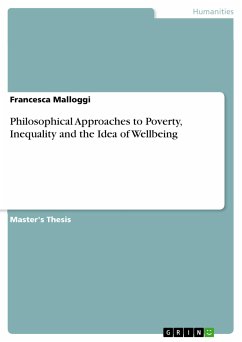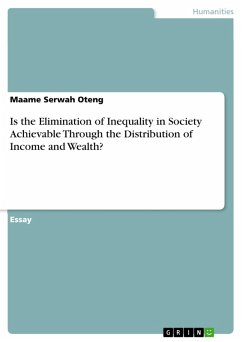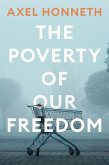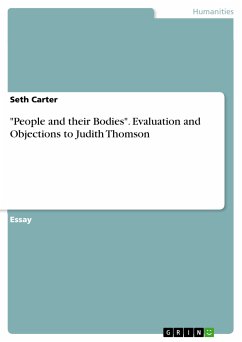Master's Thesis from the year 2017 in the subject Philosophy - Practical (Ethics, Aesthetics, Culture, Nature, Right, ...), grade: 8, University of Amsterdam, language: English, abstract: There are many definitions of poverty in a legal and philosophical sense, coming from many different institutions such as the UN, EU, individual countries and from many different philosophers. In the following work, I will suggest that we should analyze poverty and broaden the meaning together with the way of measuring it, especially adopting Amartya Sen's approach. For the moment, when discussing poverty, I will refer to the de nition given by A Dictionary of Sociology (2009), in which "poverty is a state in which resources, usually material but sometimes cultural, are lacking" (Scott and Marshall, 2009). I aim at suggesting that my analysis of relative poverty shall be taken into account not only for social and economic policies but also when dealing with issues about absolute poverty because the quality of people's life has to be determined with broader terms when speaking about developed countries; indeed, as I will show in the course of the thesis, because having a full-time job can still be related to a deprived situation for the human being, and even though the deprivation of the persons can be more or less severe regarding relative and absolute poverty, the level of suffering of the human being is still very high and therefore it requires attention and more sensitivity.Poverty and inequality are deeply interconnected and they can be broadly defined as the functioning and the outcome of the same system: the economic system based on capitalism. Poverty is functional for the capitalist system because it serves as "lubricants, greasing the joints of an otherwise creaky social system" (Wachtel, 1972; pg. 17). Poverty plays a functional part within this system as it is about the increased value of the real income of people that fall shortly above the line of the non-poor, and it works as an illusion of a given state of affairs. Also, the level of poverty allows the non-poor to buy commodities at lower prices and from this point of view, we are all served by the existence of poverty. Moreover, the second function regards the general conditions created by poverty because it ensures that the "dirty work" (Wachtel, 1972) will be done, such as dangerous, precarious, underpaid and undigni ed jobs. Poverty allows for the formation of a labor force, people who need to work whatever the physical and metaphorical costs are.
Dieser Download kann aus rechtlichen Gründen nur mit Rechnungsadresse in A, B, BG, CY, CZ, D, DK, EW, E, FIN, F, GR, HR, H, IRL, I, LT, L, LR, M, NL, PL, P, R, S, SLO, SK ausgeliefert werden.









